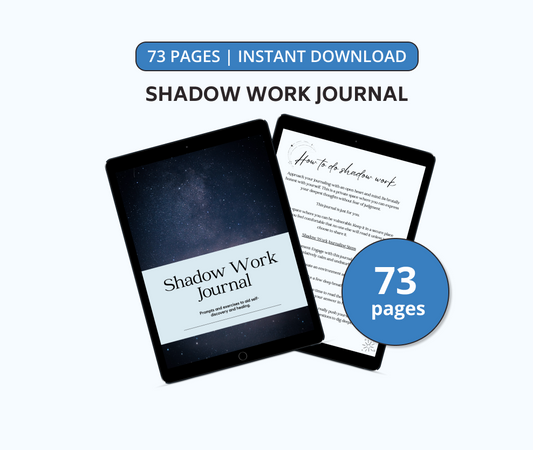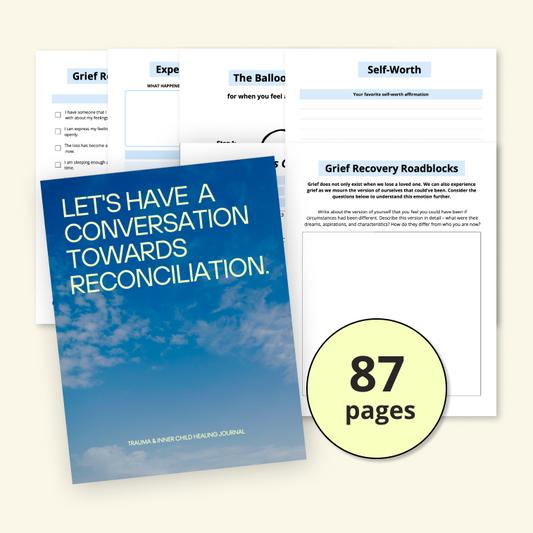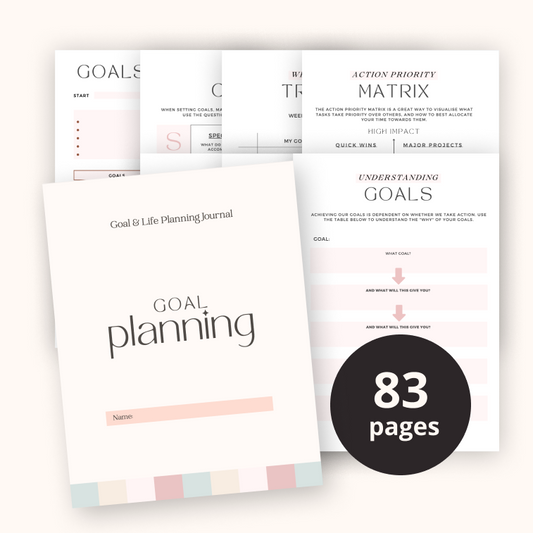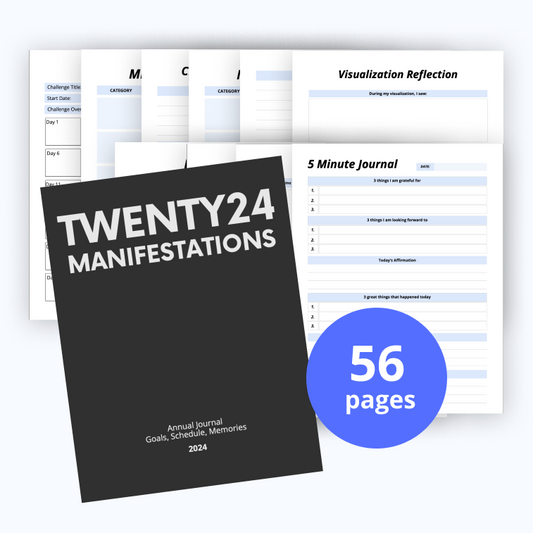Exploring your inner world can be a journey filled with discovery, and if you’re navigating Dissociative Identity Disorder (DID), journaling might just be your secret map. You’re here because you understand that words have power, especially when they come from the heart and mind, intertwining to reveal the many layers of your experience.
Ever felt like your thoughts are a tangled web, waiting to be unraveled? Journal prompts specifically tailored for DID can offer that gentle nudge, helping you untie the knots one word at a time. Stay tuned as we dive into prompts that not only provide clarity but also foster a deeper connection with all parts of yourself.
Understanding Dissociative Identity Disorder (DID)
When you’re navigating the complexities of DID, it’s like you’re piecing together a vibrant, intricate puzzle. Each piece holds a story, a memory, or an emotion that’s unique to a specific part of you. Imagine having diverse aspects of your identity, each with its flair, perceptions, and reactions, all co-existing within you. That’s the kaleidoscope of experiences shaping the daily life of someone with DID.
DID is often a response to early trauma, creating a safety mechanism where different identities or ’alters’ emerge. These alters can have their ages, genders, and distinct roles in helping you cope. Just like members of a close-knit community, each alter serves a purpose and deserves to be understood and honored.
Journaling can be a lifeline, bridging communication among your alters and you, the host. It’s not just about self-discovery; it’s also about self-reconnection and creating harmony within your inner ecosystem. Wholesome’s guided journals are here to hold your hand through this journey with compassion and a sprinkle of fun along the way.
Here are 20 Wholesome journal prompts crafted to help you connect with every part of your beautiful, complex self:
- Today, how do I feel in three simple words?
- What’s something that made me smile recently?
- Which alter has been most active and why might that be?
- Describe a place that feels safe and what it looks like.
- What are some strengths that my alters bring into my life?
- Recall a memory that brings peace or joy.
- How can I show kindness to all parts of myself today?
- What does my ideal day look like?
- Who in my life understands and supports my journey with DID?
- What are some ways I can practice self-care this week?
- What’s a recent challenge I’ve overcome and how did I do it?
- List three things that each alter enjoys and why.
- When do I feel most united with all of my parts?
- What fears can I address that might be troubling any of my alters?
- How does communication happen between my alters?
- What are the things each alter wishes others understood about them?
- How can I create a safe environment for all my alters?
- If my alters could share a message with the world, what would it be?
- What boundaries can I set to feel secure and respected?
The Power of Journaling
Imagine unlocking a pathway to deeper self-understanding with just a pen and paper. Journaling is more than a practice; it’s a journey inward, a way of charting the seas of your inner world, especially when navigating the complexities of Dissociative Identity Disorder (DID). With guided journaling, you’ll find you’re not just scribbling words—you’re reconnecting with every piece of yourself.
At Wholesome, we’ve curated a set of journal prompts that are like keys to hidden doors within you. Each prompt is a step towards greater self-awareness and inner peace. When you’re feeling lost or disconnected, these prompts are the compassionate nudges that guide you back to your center, where all your alters can find common ground.
Dive into these 20 Journal Prompts designed to encourage dialogue among your alters and strengthen your internal community:
- What am I feeling right now and which part of me feels it?
- Describe a safe space where all my alters can coexist. What does it look like?
- Which alter am I most curious about today and why?
- What are some strengths each alter contributes to my overall well-being?
- Recall a recent event. How did each alter perceive it differently?
- How can we create a better support system for each other within our system?
- Which alter holds memories that the rest of us could learn from right now?
- What’s a message I wish to convey to a specific alter?
- As the host, what would I like to thank my alters for?
- Describe a perfect day from the perspective of one of my alters.
- What are the different coping mechanisms the alters have and how do they help?
- Identify a fear each alter has and discuss how you can overcome it together.
- What are my triggers and which alter usually comes forward during these times?
- Reflect on a recent success and how each alter had a role in achieving it.
- How can we improve communication among my alters?
- What boundaries would each alter like to set for the system’s well-being?
- If my alters could have any superpower, what would it be and why?
- Which alter has been silent recently and what might they need?
- Discuss a dream where multiple alters were present. What was the experience like?
- What are hopes and dreams each alter has for our collective future?
Benefits of Journaling for Individuals with DID
Embarking on a journaling journey can be a game-changer when navigating the waters of Dissociative Identity Disorder. It’s like having a conversation with yourself, one that’s safe, private, and incredibly insightful. Picture it: a space where all your thoughts, feelings, and experiences are validated and explored, no judgments passed.
One major perk of getting your words down on paper is stress reduction. It’s like letting out a long sigh at the end of a tough day. Your brain gets a chance to declutter and breathe, calming the internal storm. If you’ve ever felt overwhelmed by the chatter of multiple alters, journaling lets each voice be heard, providing clarity and peace of mind.
Journaling doesn’t just soothe the soul; it also helps in tracking your progress. As you navigate therapy and personal growth, your journal stands witness to your journey, allowing for reflection on how far you’ve come. It’s tangible proof of your resilience and determination to thrive amidst the complexities of DID.
Let’s not forget, communication is key, especially when it comes to understanding your different alters. Journaling can encourage alters to share their thoughts in a non-confrontational way, helping you forge stronger connections within your internal system.
For the fun part—your very own list of 20 Wholesome Journal Prompts to kickstart your journaling adventure! Grab one of our guided journals and dive right in:
- What made you smile today?
- Describe a place where you feel safe.
- What’s a strength you admire in one of your alters?
- Pen down a favorite memory that brings you peace.
- What emotions have you felt today and why?
- Share something new you discovered about an alter.
- How has your support system helped you recently?
- Write a letter to an alter introducing yourself.
- Describe your perfect day—who’s there and what are you doing?
- List the goals you and your alters feel passionate about.
- What boundaries would you like to set within your system?
- Detail a dream and what it might symbolize for you or an alter.
- Capture your feelings about trust and how it’s built within your internal community.
- Reflect on a recent conflict and how it was resolved.
- What’s a special talent or skill that your alters contribute to the system?
Journal Prompts for Self-Exploration
Diving into self-exploration is like embarking on a grand adventure. You’re the hero in your own story, uncovering layers of your identity and understanding your alters on a deeper level. Your journal is your trusty sidekick, capturing every twist and turn along the way. So grab your pen and let’s unveil some prompts that are bound to spark meaningful conversations within your internal system.
Self-awareness is the key to growth, and these prompts are designed to nudge you gently toward cherished moments of insight. Whether you’re cozying up with a cup of tea or soaking in the quiet after a long day, each prompt serves as a starting point for you to unpick the threads of your thoughts and feelings.
Ready? Here’s a list of 20 prompts tailor-made for your journey:
- How do you feel today, and which alter might be influencing this emotion?
- What’s a happy memory that you and an alter share?
- What does a perfect day look like for you and your alters?
- Describe a time when you felt brave.
- What are some favorite activities of your different alters?
- Write a heart-to-heart letter to an alter you’d like to understand better.
- List five qualities you admire about one of your alters.
- What goals do you and your alters have, and how can they be achieved?
- Reflect on a time when an alter stepped in to help. How did that feel?
- Imagine a safe space. What does it look, smell, and feel like?
- Who are the individuals in your support system and how do they assist you?
- What boundaries do you and your alters need to establish for safety?
- How do you navigate disagreements within your internal system?
- Jot down a dream you’ve had recently – can you interpret its meaning?
- What are some talents you or your alters possess?
- How can you show appreciation for your alters and their contributions?
- Describe the dynamics of your internal family.
- What have you learned about yourself through journaling?
- Identify a challenge you’ve overcome and the strengths that got you through it.
- How do you picture your future, and what roles do your alters play in it?
Understanding and Exploring Different Alters
Delving into the worlds of your alters can be an enlightening journey, offering insights into the vast landscape of your internal family. Each alter holds unique experiences and perspectives, and it’s important to honor their individuality. Journal prompts can act as gentle guides to help you navigate this exploration with both care and curiosity.
When you sift through the journal prompts, remember that there’s no right or wrong way to engage with them. It’s about creating a space where every voice feels heard and respected. Below are 20 journal prompts designed specifically for understanding and getting to know your different alters.
- Write a letter to an alter you don’t know very well yet. What would you like to understand about them?
- Share a memory that makes you smile and ask your alters to do the same.
- Describe your alter’s ideal day. What activities would make it perfect for them?
- When you feel brave, what does it look like for your alters?
- List your favorite activities and invite your alters to add theirs.
- Draw or describe an object that feels significant to one of your alters and explore why it’s important.
- Set a goal with one of your alters. How can you work together to achieve it?
- Create a safe space in your mind. What does it look like, and who is invited?
- Discuss your support systems. How do different alters see the support around you?
- Establish boundaries. What do your alters need to feel secure?
- Navigate disagreements within your system. How do you find common ground?
- Interpret a dream from the perspective of another alter.
- Discover talents you didn’t know you had by asking your alters to showcase theirs.
- Write a note of appreciation for one of your alters. What are you grateful for about them?
- Describe the dynamics of your internal family. Who takes on what roles and why?
- Reflect on how journaling has helped in self-discovery from the viewpoint of different alters.
- Share challenges each alter has overcome. How did they manage to do it?
- Envision the future. What does each alter hope for?
Journaling as a Tool for Integration and Healing
Diving deeper into the art of journaling, you’ll discover it’s more than just a ritual of putting thoughts to paper; it’s a path to harmony and self-healing. Embracing journaling allows you to dismantle barriers between alters and facilitate a heartfelt conversation with yourself.
Journaling transcends routine self-expression by providing a safe space for each alter to voice their feelings and experiences. It’s not just about reflection—it’s about active engagement with every part of your internal system. Through written dialogue, you can promote understanding and compassion among your alters, which is pivotal for integration and healing. This dialogical journaling acts like a bridge, turning tumult into tranquility among the diverse parts of your identity.
Let’s ignite this journey with some heartwarming journal prompts tailored for your introspective adventure. Not only will they guide you toward self-acceptance and unity, but they’ll also sprinkle a bit of joy in the process. Remember, there’s no right or wrong way to journal—your unique story unfolds in every word you jot down.
20 Heartwarming Journal Prompts
- Describe a moment each alter felt bravest.
- What are small victories you’ve celebrated recently?
- Illustrate your perfect world through the eyes of different alters.
- Share a dream you had from the perspective of another alter.
- Pen down a letter of forgiveness to your past self.
- Envision a place where all your alters feel safe—what does it look like?
- Acknowledge each alter’s favorite pastime.
- Delve into a happy memory one alter shares with another.
- What lessons have your experiences taught you?
- Write about a challenge you overcame together.
- Explore the unique talents and strengths of each alter.
- Jot down what you appreciate most about your internal family.
- Create an anthem that encapsulates your collective resilience.
- Reflect on how each alter contributes to your daily life.
- Imagine a day in the life from a different alter’s perspective.
- Discuss your aspirations and how each alter plays a role in achieving them.
- Craft a story where all alters work together to solve a problem.
Conclusion
Harnessing the power of journaling could be a transformative step in your journey with Dissociative Identity Disorder. The prompts you’ve explored are designed to guide you through self-reflection and facilitate a deeper understanding of your alters. Remember journaling is a personal process and there’s no right or wrong way to approach it. Let your words flow freely and trust in the healing that comes from expressing your innermost thoughts and feelings. Embrace this tool and watch as it helps you navigate the complexities of DID with greater clarity and harmony.




